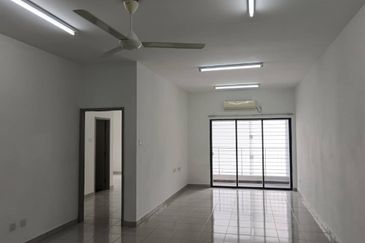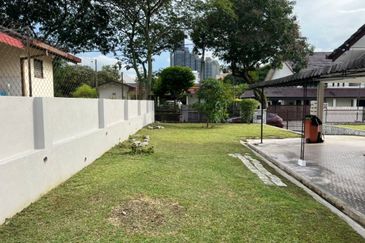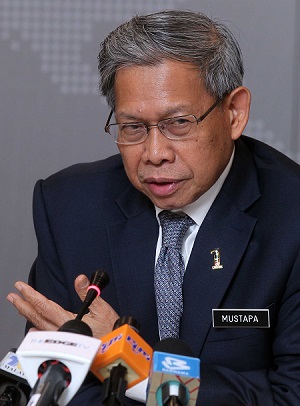 KUALA LUMPUR (Aug 12): A leading British forecasting group says the ringgit will remain strong against the pound sterling, ranging between 5 and 5.40, over the next five years.
KUALA LUMPUR (Aug 12): A leading British forecasting group says the ringgit will remain strong against the pound sterling, ranging between 5 and 5.40, over the next five years.
Noting that the ringgit, which was one of Asia’s worst-performing currencies last year, is now 8% to 9% stronger against the pound sterling as compared to June when the UK voted to exit the European Union (EU), the Economist Intelligent Unit (EIU) said it expects the devaluation of the British currency to be a long-term phenomenon.
“Since the UK voted to leave the EU, there has been quite a bit of currency volatility and for the ringgit ... that movement has mostly been up,” said EIU global chief economist Dr Simon James Baptist.
“Malaysia can expect its currency to be stronger against the UK currency for the next five years than it would have been otherwise,” Baptist told reporters on the sidelines of the Affin Hwang Capital Conference Series 2016, “Navigating Through Shifting Sands” yesterday.
While pointing out that Malaysia has a small direct exposure to the UK, Baptist said the Brexit vote will further delay the EU’s free trade agreement negotiations with Asean.
“Curtailing European consumption of Asean goods is a likely short-term impact of Brexit,” he added.
Baptist also said that the exit process is likely to be slow, with the UK expected to trigger Article 50 of the Lisbon Treaty in 2017.
“It will take at least two years to reach an agreement on the exit. Uncertainty is expected until the exit terms are known,” he said.
Meanwhile, Affin Hwang Investment Bank Bhd chief economist Alan Tan Chew Leong expects Malaysia’s gross domestic product (GDP) growth for the second quarter this year (2Q16) to slow to 4% from the 4.2% achieved in 1Q16 due to lower private consumption and private investments.
“We are cautiously optimistic about the local economy. However, there is a downside risk in economic growth, partly because of China’s slowdown and the Brexit implications,” he said.
Affin Hwang has a GDP growth forecast of 4.2% for Malaysia this year and 4.4% for 2017, underpinned by the country’s fundamentally sound and healthy domestic demand.
Earlier at the conference, International Trade and Industry Minister Datuk Seri Mustapa Mohamed (pictured) said the country’s GDP growth has remained resilient despite the challenges faced compared with other regional players.
Growth, he highlighted, has been steady since 2010 and the official 2016 GDP forecast is expected to be around 4% to 4.5%, in line with Affin Hwang’s forecast.
“Forget the short-term crisis. For the medium and long term, we are right on track,” Mustapa said.
He said the country has weathered several challenges in 2015 and so far this year. These included the ringgit’s volatility, drop in oil prices, a soft commodity market, China’s slowdown, and now the uncertainty surrounding the Brexit issue.
He noted that Malaysia has diversified away from oil revenue, which resulted in its top line from oil dropping to 14.1% in 2016, from 41.3% in 2009.
World Bank senior economist Rafael Munoz Moreno is also expecting Malaysia’s economic growth to slow to 4.4% this year before rebounding to 4.5% in 2017 and 4.7% in 2018. The country charted a 5% GDP growth last year.
This article first appeared in The Edge Financial Daily, on Aug 12, 2016. Subscribe to The Edge Financial Daily here.
TOP PICKS BY EDGEPROP
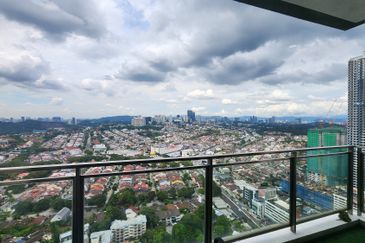
Nadi Bangsar Service Residence
Bangsar, Kuala Lumpur
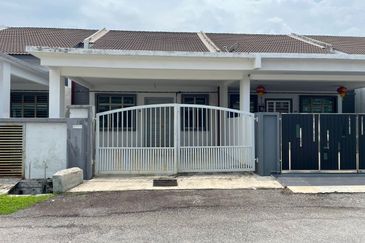
Taman Tanjung Minyak Perdana
Bukit Rambai, Melaka

Hampton Damansara
Country Heights Damansara, Kuala Lumpur

Hampton Damansara
Country Heights Damansara, Kuala Lumpur

Hampton Damansara
Country Heights Damansara, Kuala Lumpur

Hampton Damansara
Country Heights Damansara, Kuala Lumpur

Taman Sains Teknologi, Kota Damansara
Petaling Jaya, Selangor








